- Introduction
- 10 Year Network Development Plans (TYNDPs)
- Link with Projects of Common Interest (PCIs)
- Current status and future plans
- Questions and answers
Some take-aways from @anto4193 from @EnerginetDK on the joint planning of the gas and electric system at the European Level during the 6th @EnergySystemsIG Seminar
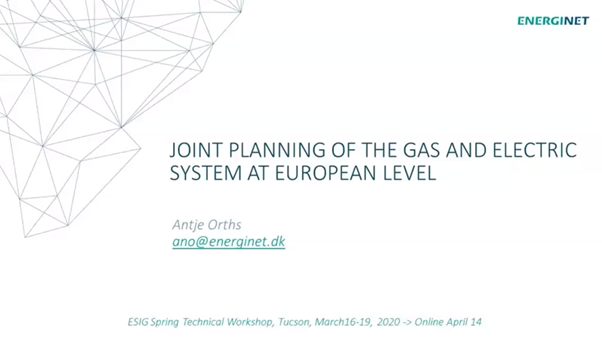
Introduction
EU Climate Targets
European climate targets means a doubling of electrification by 2050 + efficiency increase. https://t.co/Ir7mmAlg6n
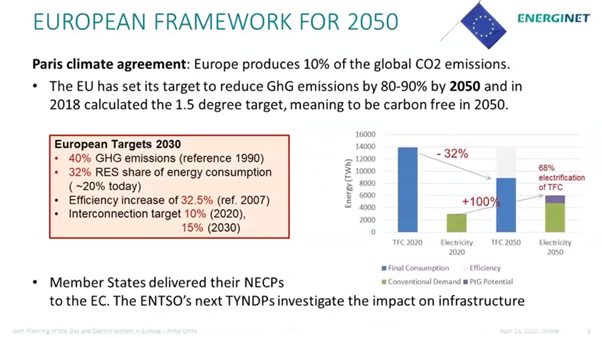
Member States Targets
Differ between MSs, for example:
- DE : 65 % in 2030
- DK: 100 % in 2030 https://t.co/D4DGDq8djH
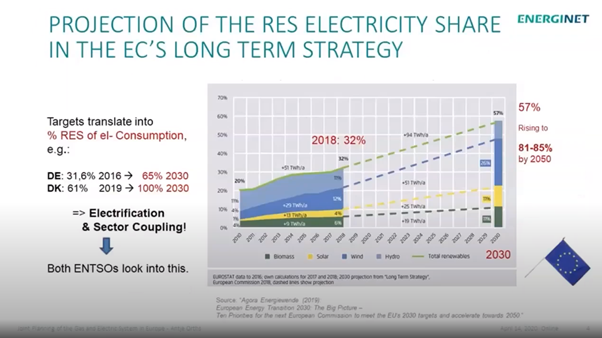
Legal background
EC 347/2013 require TSOs and DSOs to deliver a consistent and interlinked electricity+gas market and network model, including transmission infrastructure/ storage/LNG facilities, priority corridors and areas+cost-benefit assessment methodologies https://t.co/TcQDqSRiiI
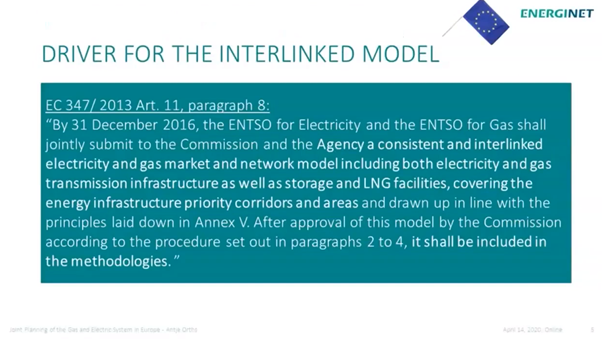
Why?
Before law of 2013 : plans were received with increasing gas demand (@ENTSOG) and decreasing gas (@ENTSO_E )
–> ENTSOs’ interlinked modelling process (#TYNDPs) https://t.co/QhmwRbtczk
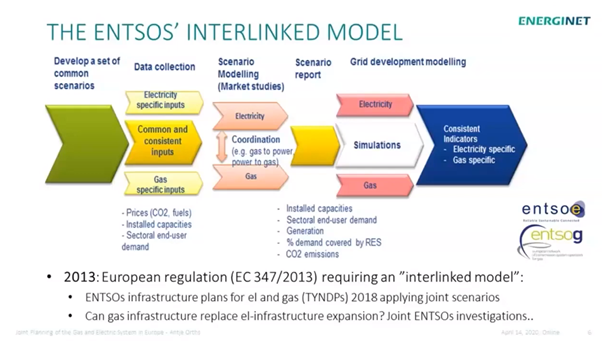
10 Year Network Development Plans (TYNDPs)
Last one: TYNDP2020 https://t.co/6uPH5ih3xA https://t.co/wm3ZDlBEF2
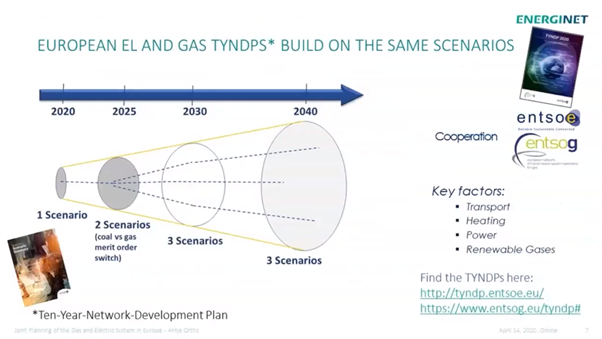
TYNDP2020
Contains shares of electricity and gas in different target years, different scenarios:
- Upper: national trends (built on NECPs)
- Other: top-down, built by both ENTSOs (@ENTSO_E , @ENTSOG)
- Distributed energy
- Collaboration (?Global ambition?)
- … https://t.co/sSb19YKHYY
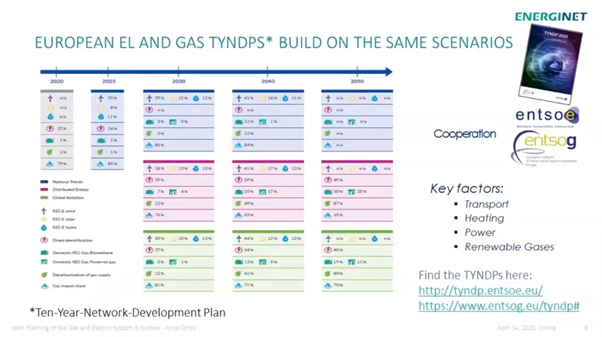
2-yearly development cycle of TYNDPs
Process: Scenario building –> screening (socio-economic welfare with market prices) –> cost benefit assessment, based on long-term scenarios of 2040 https://t.co/c5I27QL8dx
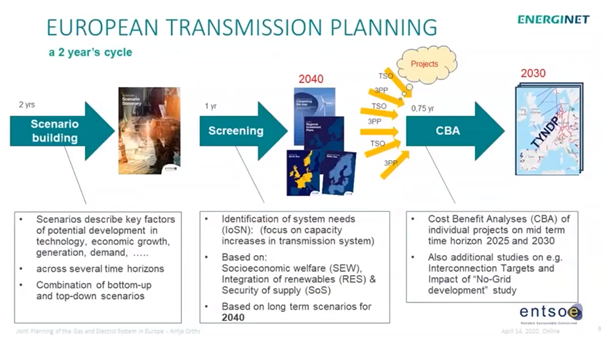
Electricity and gas network interactions
Investigation of interlinkage of sectors took place with the help of @_Artelys : is it enough to investigate a project in one sector, or should it be done for several sectors at the same time? (?dual assessment?) https://t.co/fJVi9GIarN
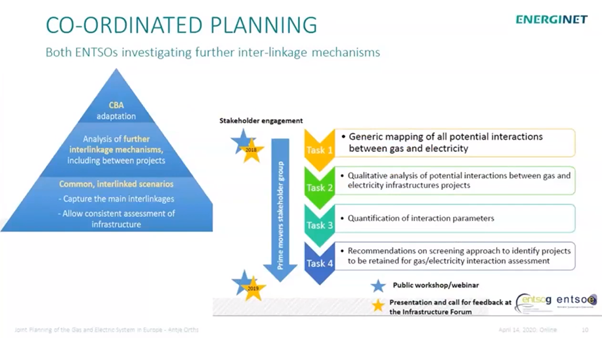
Mapping @_Artelys resulted in
- Direct : “can be submitted as project”
- Indirect : “translated into demand”
types of interactions https://t.co/A8hU8FYpWE
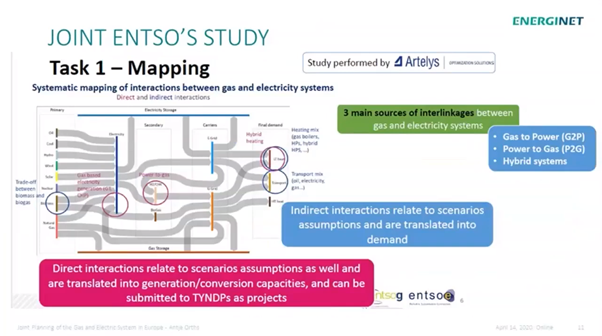
…and project screening method to assess interlinkage of gas + electricity projects https://t.co/R7Rz3GJKdT
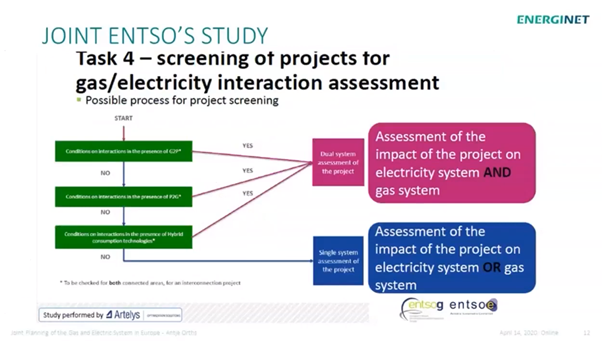
…which was adapted by @ENTSOG and @ENTSO_E in their assessment (‘Interlinked Model’) https://t.co/7T8Wf6LON3
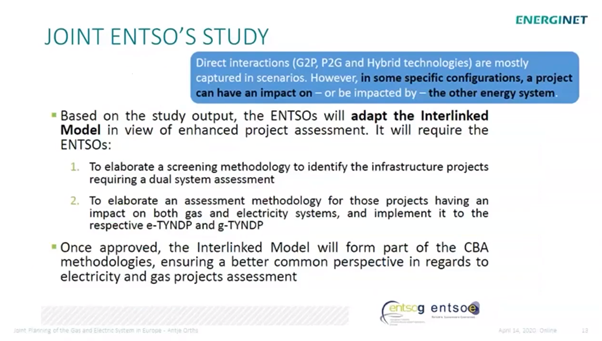
Cost-benefit assessment
Consists of 13 indicators for 166 transmission projects and 15 storage projects [3 scenarios, 3 climate years, 3 market modelling and 3 grid modelling tools]
- Costs (CAPEX/OPEX)
- Benefits: welfare, CO2, RES integration, … https://t.co/g3m4IQaJWt
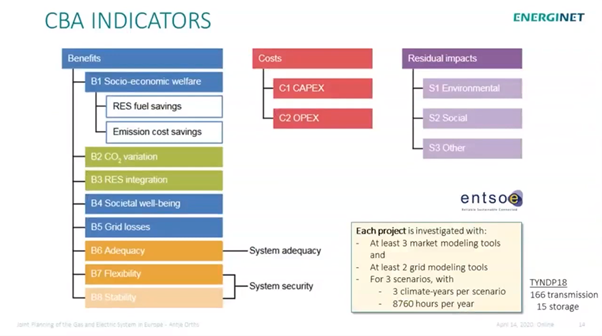
Cost benefit assessment:
Individual investigation for each project
(green = projects under construction) https://t.co/kIMPTHY5DJ
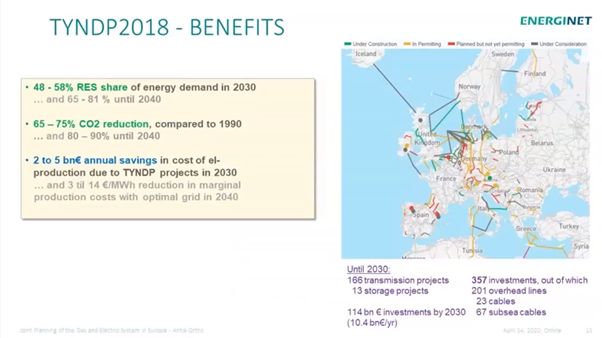
Link with Projects of Common Interest (PCIs)
TYNDP projects can apply to become a PCI Advantages: accelerating planning and “one stop shop? permitting
PCI based on:
- 12 geographic corridors (electricity, gas, oil)
- themes (smart grid, CO2 networks, electricity highways) https://t.co/BeYg8wftER
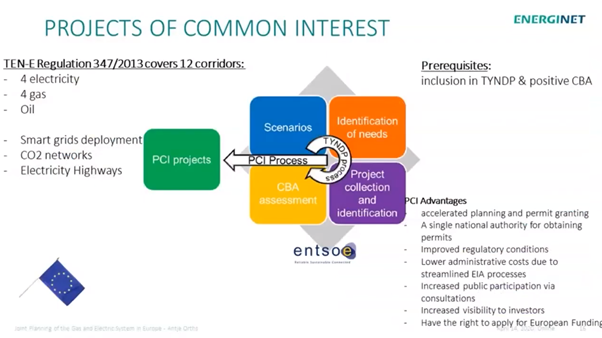
Current status and future plans
Completed and ongoing projects for electricity (blue) and gas (red)
114 billion EUR investment is planned during next decade.
For now, 4 billion EUR has been spent. Small compared to total. https://t.co/eCyHTvZMLO
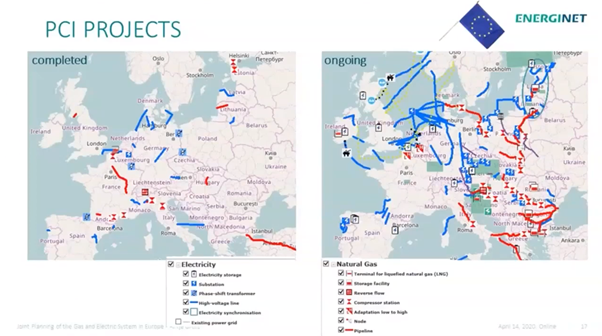
Questions and answers
How to decide what to build?
ENTSOs don’t decide with TYNDPs, but only provide information (13 indicators). @EU_Commission calculates then net present value with points system, translating the projects into monetary values. Afterwards market decides.
How to compare gas and electricity projects?
If there are competing projects either within or between sectors, the process is the same. Projects are described in an amount of money, on which the decision is based. Weighted with other indicators such as security of supply.